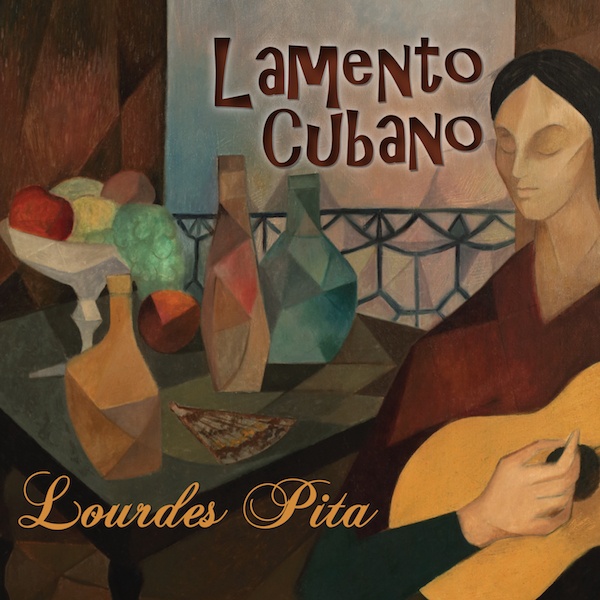
With Lamento Cubano, Lourdes Pita has created a really pretty folk-ish album. I say folk-ish because this has folk at its roots, but then it goes on to embellish upon that description. It’s a good one, too.
Early on, with “Baila Mi Alma,” acoustic piano colors a track that is orchestrated, with just a touch of what was once termed New Age music. The violin is what gives it its ‘80s instrumental vibe. However, the orchestration of it makes it so much more than just a retro-ly instrumented piece. Pita also sings it with an emboldened authority, as though she’s unafraid to say exactly how she feels.
That one is followed by the Latin jazzy “Casa De Luz.” It begins with a flurry of Spanish guitar before it settles into a gently flowing guitar groove accompanied by distinctly Latin percussion. This time, Pita sings with a laidback, relaxedness that shows an entirely different side of her vocal personality. Although not as jazzy, “No Hay Problema” is equally – if not more – relaxed than “Casa De Luz.” Pita sings with just a touch of Natalie Merchant (of 10,000 Maniacs) in her voice. It’s a sweetly lighthearted performance, backed by Latin acoustic guitar and flexible bass. It also includes a couple punchy acoustic piano solos on it.
Pita returns to a more serious vocal feel with “Solución.” With it, Pita also returns to that aforementioned authoritative singing style. Another jazz-ish inclusion is “Ocho Vientas,” which once again applies plenty of lovely acoustic piano. However, the track is also driven by a nicely bendy bass line. Both sonic elements give the song a decidedly jazzy feel. Once again, though, it’s Pita’s strong, I’m-in-charge singing voice that takes center stage on it.
https://smarturl.it/LamentoCubano
“Un Amor Extraño” expands the vocal part to also include backing vocals. This sounds like Pita multi-tracking herself, and it’s a nice production element. Once again, it includes a mighty fine acoustic piano solo. Although the song is more American pop sounding than much of what comes before it, all the acoustic instrumentation nevertheless gives the recording an authentic feel.
The album closes with an acoustic version of its title track. Pita is such an assertive singer she really doesn’t need a lot of instrumentation to sell her songs. This one is just Pita over an acoustic guitar. And it’s all she really needs. Whereas some pop singers need a strong dance beat or marching band room full of instruments to create their sound, Pita has the sort of vocal style that draws you in and keeps you hanging onto her every word. She is truly a special singer, and this record is an extremely good project for her to lean in and show us what she can do. She can probably sing anything she likes, but these songs are clearly near and dear to her heart. Sure, it might even have more impact if you speak her language. However, expressive singing goes far beyond any language limitations. It’s obvious what she’s singing about, even though many of us won’t pick up on each and every word. Simply put, this is beautiful music.
https://lourdespita.com/
https://www.facebook.com/LourdesPitaMusic/
https://twitter.com/LourdesPita1
-Dan MacIntosh

